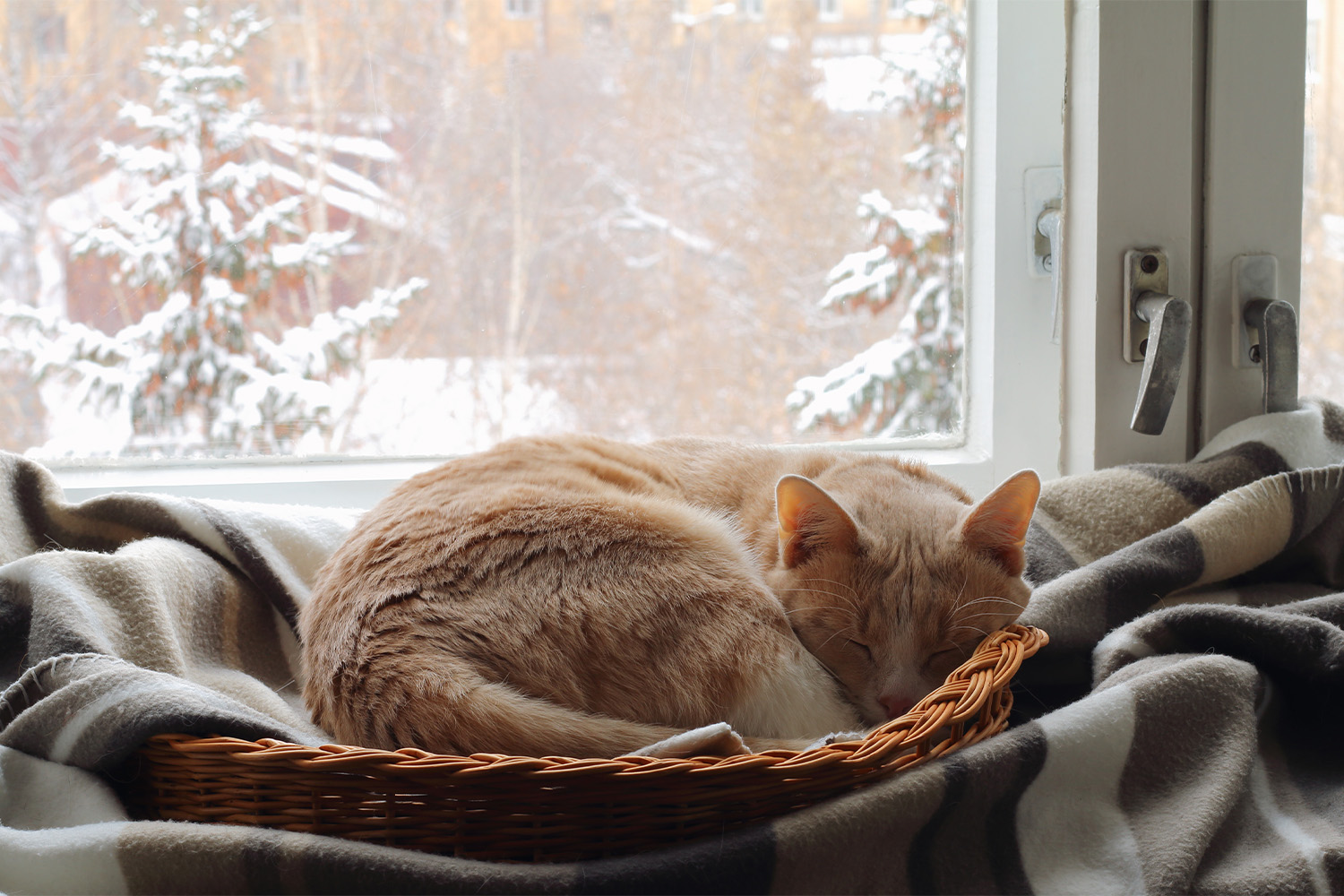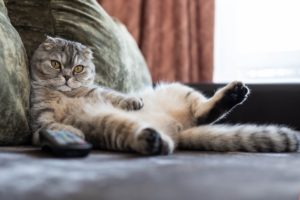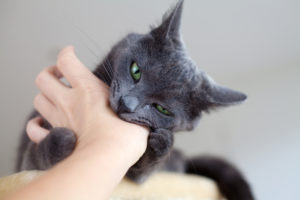If you’re a cat parent, you might be jealous of all the deep sleep your cat gets throughout the day. First-time pet parents might worry that their cat is sleeping too much, but it’s true that kittens and adult cats alike love a good nap. In most cases, it’s likely that you have nothing to worry about.
Every cat will have their unique sleeping habits that you will begin to pick up on. You’ll know what time of day they get a lot of energy, where their favorite place to nap is, as well as knowing what to look out for that might tell you your cat seems to be sleeping too much. Keeping track of their sleep habits might ease your worries and alert you to anything wrong with the amount of sleep they’re getting.
Keep reading to learn more about why your cat is sleeping so much!
Why Does My Cat Nap So Much?
Unlike humans, cats don’t usually sleep for an extended period of time. Cats won’t lie down and get eight hours of sleep like humans are encouraged to. Instead, cats nap at any moment’s notice. This means that every few hours, they are in need of some shut-eye to recuperate and gain back their energy for more playtime.
You may find your cat dozing off in the sun or catching a quick snooze in your bedroom. Many cats love to cuddle with their humans while they nap, so you might notice your cat lying down in areas where they know you’ll be.
Don’t be surprised if your cat is sleeping periodically throughout the day because they were likely up in the twilight hours, causing mischief.
How Much Sleep Do Cats Need?
Not all cats will follow the same sleep schedule, so there is no right answer. Typically, cats will sleep between 12 and 15 hours throughout the day, but this sleep cycle can fluctuate.
Depending on their environment and age, their sleep could range from ten to 20 hours, with older cats sleeping the most in many cases. They have a unique sleep-wake cycle that can change based on their environment.
Cats who find themselves in more stressful or high-stakes environments, like in shelters or on the street, might not sleep as much as house cats. A highly stressed cat in an unsafe environment might not be able to sleep as much, whereas a cat experiencing no stress in a home might sleep more.
Many factors play into how much sleep a cat generally needs:
Their Ancestors Were Nocturnal
Many people believe that having nocturnal ancestors plays a role in how house cats function. Most cats will be dormant during the nighttime hours when their people are sleeping because they pick up on your schedule. However, it’s not unusual to be awoken by your cat jumping off of a bureau or hunting shadows in the middle of the night.
Cats are natural predators; throughout history, wild cats would find themselves hunting in the evenings, early mornings, and throughout the night. Even your domesticated cat might be getting back to their ancient roots and using the night to practice their hunting skills. If you hear them pouncing in the middle of the night, that’s probably the case.
They Are Conserving Energy
Your feline friend uses up their energy throughout the day, so when they feel they need to recharge, a quick cat nap is in order. Since they don’t sleep for only one long period, they use naps as a way to rebuild their energy.
You might notice that after some naps, your cat is bursting with energy and needs to do some zoomies to get them under control. Once they feel nice and energized, they’ll be sure to let you know.
Your Cat Could Be Bored
If your cat can’t find anything entertaining to do, they might just decide to take a nap. This really shouldn’t be a concern! You likely aren’t able to interact with and entertain your cat 24/7, so if they know that taking a nap is an option, let them take it.
You might be worried that your cat is too bored. In that case, finding new ways to entertain them and stimulate their brain might be beneficial. You can create obstacles for your cat, install cat shelves at different heights to jump to and from, or even teach your cat new tricks.
Mental stimulation and physical activity are vital ways to keep your cat entertained, and it also helps you to tire your cat out naturally and through interaction. Your cat will be happy to play or learn something new with you, followed up but a snuggle on the couch.
Stress Might Be a Factor
Some cats that are experiencing stress will cope by sleeping more or disappearing for long stretches of time. During these times when they are hidden, a cat might be trying to rest due to anxiety. Anxiety can make us more tired, so you’ll want to take note of any behavior changes in your cat.
If you can locate the cause of stress, work to eliminate it from your cat’s life so they can get back on a normal sleeping schedule. At this point, it might be beneficial to reach out to an expert in animal emotional wellness and behavior.
Your Cat Might Be Sick
Cats that are feeling unwell might rest more. If your cat has a change in their everyday behaviors and starts to hide away or sleep for more hours in the day, they might be sick. You should keep note of their new sleep patterns and if there are any other symptoms.
If you notice other symptoms, such as vomiting, lethargy, diarrhea, constipation, or general soreness and agitation, you should contact your cat’s veterinarian to get medical attention.
Take a Cat Nap With Them!
Maybe your cat isn’t sleeping too much, and you just need to take a cat nap with them. Have you thought of that?! Your cat might be trying to remind you that you should be resting and not working too hard.
Cat naps are great for recharging and regaining energy. It’s actually necessary for your cat to nap throughout the day so they can stay more alert when needed. If you have questions about your cat’s behavior, head to AskVet to get answers. By joining, you also gain access to a community of other pet lovers who have similar questions and worries.
When you schedule a virtual chat with the AskVet team of Certified Pet Lifestyle Coaches™, you can help your cat — and any other non-human family member — live a more well-rounded and fulfilled life. Develop a 360-degree care plan for your cat, lizard, dog, fish, and more — and raise your pets with the village we all need.
Sources:








